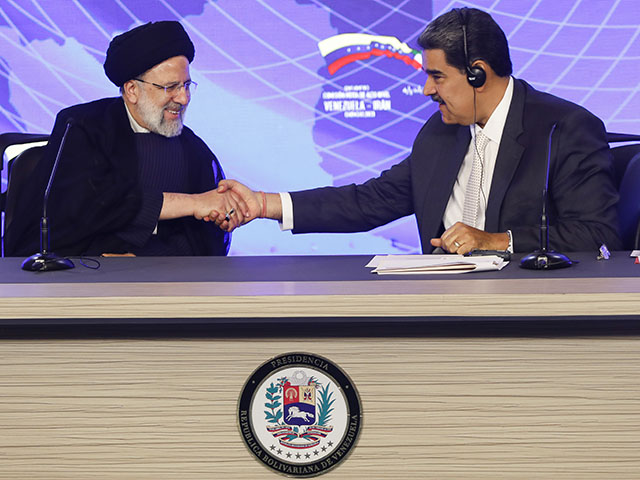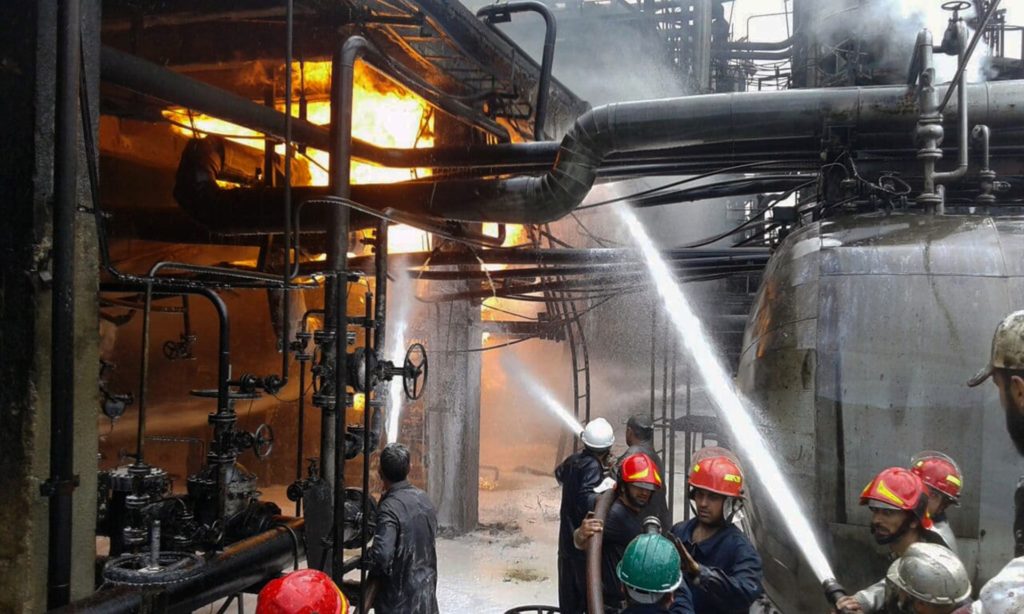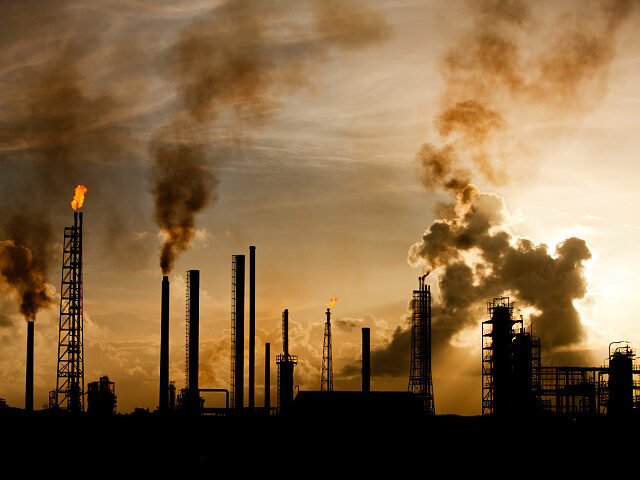The rogue governments of Iran, Syria, and Venezuela have signed an agreement to build an oil refinery in the former rebel stronghold of Homs, Syria, Iran’s Tasnim News Agency reported on Sunday.
Tasnim, which is favorable to Iran’s Islamic theocracy, claimed that the proposed oil refinery would process 140,000 barrels per day (bpd) once completed, issuing a significant boost to production under Syrian dictator Bashar Assad. Iranian officials claimed that “studies” indicate the Homs area has unmet fuel demands that require such a project. Reports did not indicate whether the oil refined at this proposed facility would be domestic or come from either Iran or Venezuela.
The details of the Iranian government’s announcement align with a similar declaration by the Iranian Research Institute of the Petroleum Industry in 2017 that claimed the three countries would work on the joint construction of an oil refinery. At the time, all three nations were under severe sanctions by the administration of then-U.S. President Donald Trump, raising into question how any of the nations could sell that oil abroad once refined without running afoul of sanctions. Trump’s successor, current President Joe Biden, eased sanctions on Venezuela last year, resulting in a marked increase in production and profits for the socialist regime of dictator Nicolás Maduro. The sanctions relief has also allowed a much larger amount of Venezuelan oil to enter American markets.

Venezuelan President Nicolas Maduro and Iranian President Ebrahim Raisi attend Venezuela – Iran Joint Commission in Caracas, Venezuela on June 12, 2023. (Pedro Rances Mattey/Anadolu Agency via Getty Images)
“A tripartite memorandum was signed between Iran, Venezuela, and Syria for a new 140,000 barrel refinery to be built in Syria,” Tasnim quoted Jalil Salari, the Managing Director of the National Iranian Oil Refining and Distribution Company (NIORDC), as saying in its report on Sunday.
“The studies that were conducted found that Syria and its neighboring countries are in need of oil products, therefore a refinery with a capacity of 140,000 barrels was identified next to the two existing Syrian refineries of Homs and Baniyas,” he reportedly added.
Middle East Monitor traced the Salari remarks back to the Iranian state Fars News Agency and added that Salari indicated that the countries had agreed upon the “fundamental studies and designing process” for the oil refinery, but the specifics of “financing and construction” remain to be completed.
By subscribing, you agree to our terms of use & privacy policy. You will receive email marketing messages from Breitbart News Network to the email you provide. You may unsubscribe at any time.
PressTV, an Iranian government-owned outlet, reported last week that Iran had also aided in refurbishing a separate oil facility in Homs capable of refining 110,000 bpd, which will complement the new refinery and a neighboring one in Banias.
Homs is one of the areas most devastated by the decade-long Syrian Civil War, which never formally ended but has entered a latent phase following the collapse of the Islamic State “caliphate” and Assad’s success in eradicating most opposition forces — with Russian and Iranian help. In a report on the 13th anniversary of the war published in March, the Associated Press noted that the Assad regime had rebuilt some of Homs — and some of Aleppo, another hollowed-out opposition stronghold — but “entire cities, towns and villages remain in ruins, while the conflict has caused lasting damage to the country’s electric, transportation and health systems.”
Iran is arguably Syria’s closest geopolitical ally, along with Iran, as a result of similar ideological stances and religious profiles. Iran-backed militias and the Iranian state Islamic Revolutionary Guard Corps (IRGC) were active participants in Syrian civil war hostilities. In 2017, widespread reports accused Iran of sending large numbers of Afghan refugees into the Syrian war theater as “cannon fodder” to defend Assad.

In this photo released by the Syrian official news agency SANA, firefighters put out a fire at the Homs Oil Refinery, in the central province of Homs, Syria, Sunday, May. 9, 2021. (SANA via AP)
Venezuela has been as persistent an ally to both nations as they have been to each other. Its warm relations with Iran are a result of late socialist dictator Hugo Chávez cultivating a friendship with former Iranian President Mahmoud Ahmadinejad that has led to both countries routinely defending each other at the United Nations and other venues when confronted on their atrocious human rights records and jointly calling for the removal of sanctions.
Venezuela is also suspected of helping Syria and Iran through cooperation with the Shiite terrorist group Hezbollah. In 2015, Spanish journalist Emili Blasco reported that Chávez sent Maduro to Damascus, Syria, in 2007 — when the latter was serving as foreign minister — to hold a secret meeting with Hezbollah chief Hassan Nasrallah, in addition to holding discussions with Assad and top regime officials. Among the issues reportedly discussed were collaboration in drug trafficking, “the distribution of arms[,] and issuing of passports.”
The year Blasco’s revelations surfaced, 2015, Maduro delivered a national address in full defense of Assad, proclaiming him the only person who could “guarantee stability in Syria and in the entire region” and a victim of the “hatred unleashed by American imperialism and NATO.”
“We from Venezuela urge the world, those taking decisions, to stop their madness in wanting to destroy Syria, in wanting to substitute the legitimate government of Syria,” Maduro announced. “They’ve done enough damage – how many millions of Syrians are seeking refuge elsewhere in the world?”
The humanitarian aid agency World Vision estimates that the Syrian civil war has forced 5.4 million people to flee the country, less than the 5.6 million who have fled Venezuela as a result of the Maduro regime’s socialist economic policies and political repression.

COMMENTS
Please let us know if you're having issues with commenting.